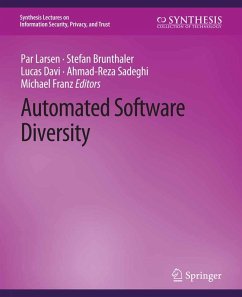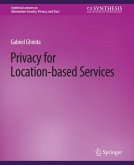Per Larsen recently decided to try his luck as an entrepreneur and currently leads an information security startup: Immunant, Inc. Previously, he worked four years as a postdoctoral scholar at the University of California, Irvine. He graduated with a Ph.D. from the Technical University of Denmark in 2011. He enjoys caffeinated beverages and staying up very late.
Stefan Brunthaler received a Dr.techn. with distinction from TU Vienna in 2011 and spent the next four years as postdoctoral scholar at the University of California, Irvine. Currently, he is a key researcher at SBA Research in Vienna, Austria, working on various topics in language-based security.
Lucas Davi is a researcher at the Intel Collaborative Research Institute for Secure Computing (ICRI-SC) at Technische Universitat Darmstadt, Germany. He received his Ph.D. from Technische Universitat Darmstadt, Germany, in computer science, focusing on code-reuse attacks and defenses. His research focuses on exploits suchas return-oriented programming (ROP) for diverse processor architectures. He is working on new attack methods and countermeasures against exploits such as control-flow integrity and software diversity.
Ahmad-Reza Sadeghi is a full professor of Computer Science at Technische Universitat Darmstadt, Germany. He is the head of the System Security Lab at the Center for Advanced Security Research Darmstadt (CASED) and the Director of the Intel Collaborative Research Institute for Secure Computing (ICRI-SC) at TU Darmstadt. He holds a Ph.D. in Computer Science from the University of Saarland in Saarbrucken, Germany. Prior to academia, he worked in Research and Development of Telecommunications enterprises, amongst others Ericsson Telecommunications.
Michael Franz is the director of the Secure Systems and Software Laboratory at the University of California, Irvine (UCI). He is a Full Professor of Computer Science in UCI's Donald Bren School of Information and Computer Sciences and a Full Professor of Electrical Engineering and Computer Science (by courtesy) in UCI's Henry Samueli School of Engineering. Prof. Franz was an early pioneer in the areas of mobile code and dynamic compilation. He created an early just-in-time compilation system, contributed to the theory and practice of continuous compilation and optimization, and co-invented the trace compilation technology that eventually became the JavaScript engine in Mozilla's Firefox browser. Franz received a Dr. sc. techn. degree in Computer Science and a Dipl. Informatik-Ing. ETH degree, both from the Swiss Federal Institute of Technology, ETH Zurich.









